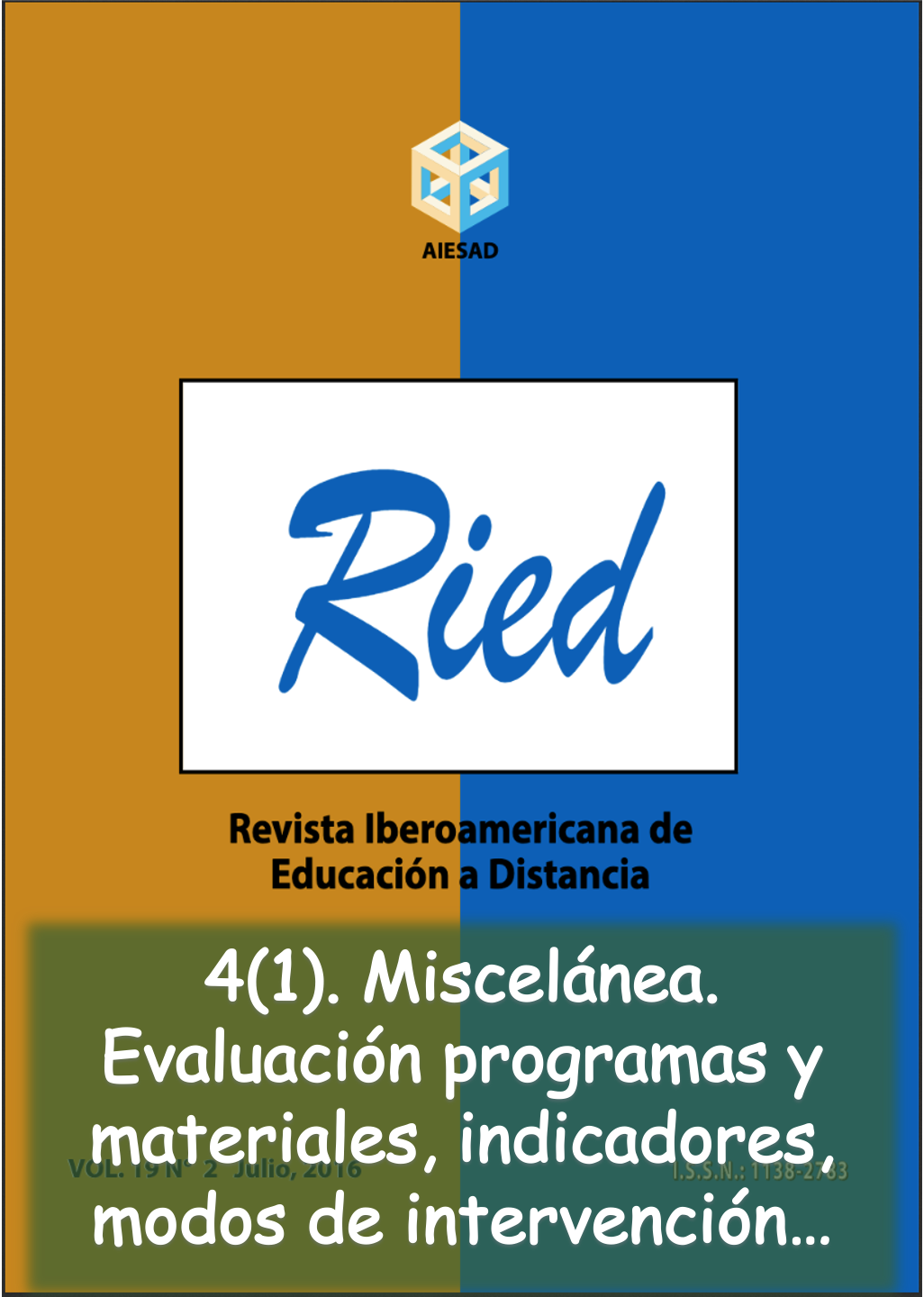EVALUATION OF DISTANCE EDUCATION PROGRAMS
DOI:
https://doi.org/10.5944/ried.4.1.1189Keywords:
evaluation, diagnosis, foreseen results, unforeseen results, institutional evaluationAbstract
Among the specific characteristics of the education at distance highlights the evaluation necessity, like fundamental part of the previous planning and of the necessary control of processes and results. This evaluation must embrace from the previous diagnosis until the planning, the process and the results, be these foreseen or not. This regarding the didactic materials and to the strict process of teaching-learning, but it is also necessary to add the evaluation of the activity developed by the educational tutors and for the group of the educational institution.Downloads
Downloads
How to Cite
Issue
Section
License
The articles that are published in this journal are subject to the following terms:
1. The authors grant the exploitation rights of the work accepted for publication to RIED, guarantee to the journal the right to be the first publication of research understaken and permit the journal to distribute the work published under the license indicated in point 2.
2. The articles are published in the electronic edition of the journal under a Creative Commons Attribution 4.0 International (CC BY 4.0) license. You can copy and redistribute the material in any medium or format, adapt, remix, transform, and build upon the material for any purpose, even commercially. You must give appropriate credit, provide a link to the license, and indicate if changes were made. You may do so in any reasonable manner, but not in any way that suggests the licensor endorses you or your use.
3. Conditions for self-archiving. Authors are encouraged to disseminate electronically the OnlineFirst version (assessed version and accepted for publication) of its articles before publication, always with reference to its publication by RIED, favoring its circulation and dissemination earlier and with this a possible increase in its citation and reach among the academic community.









